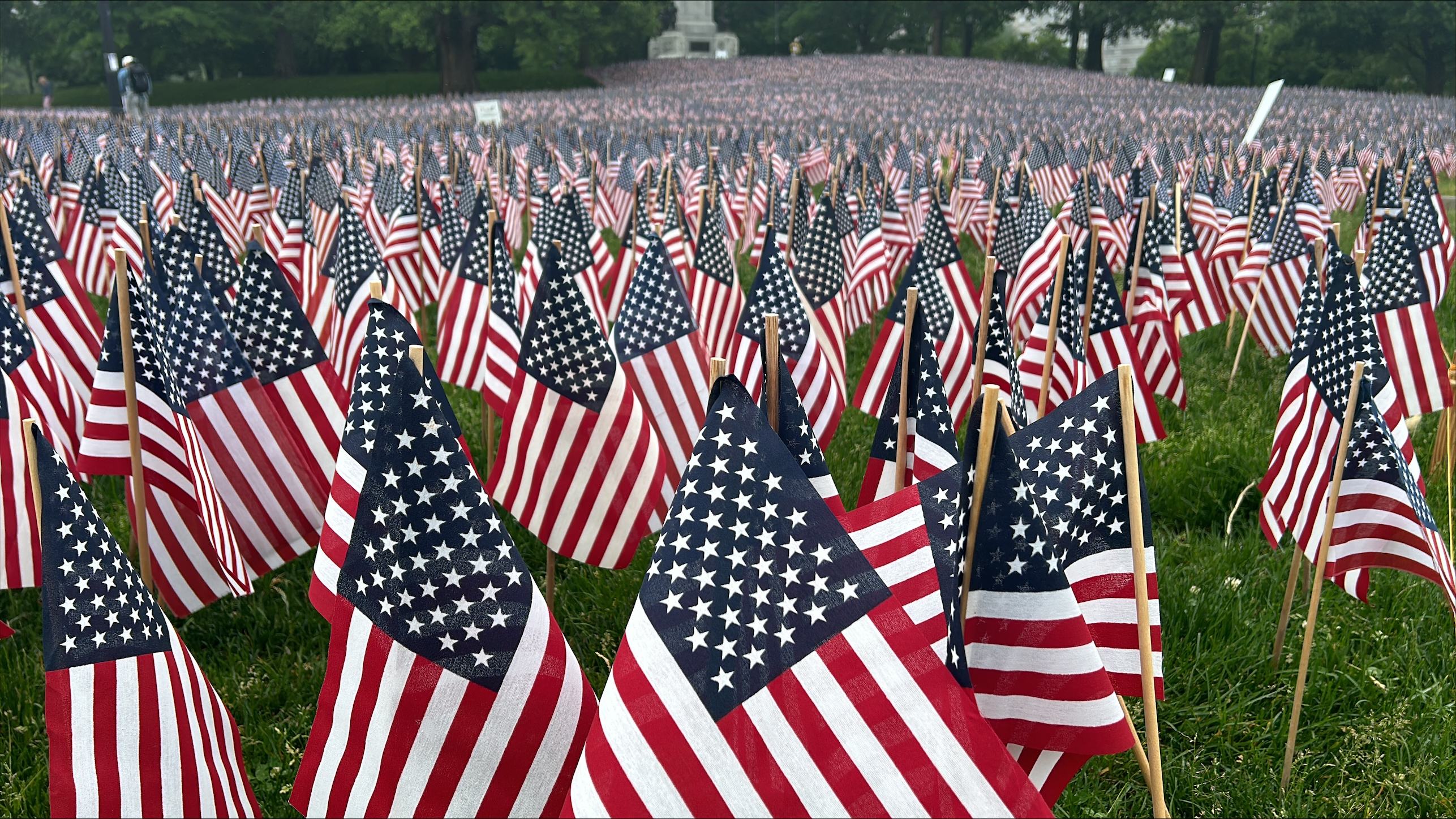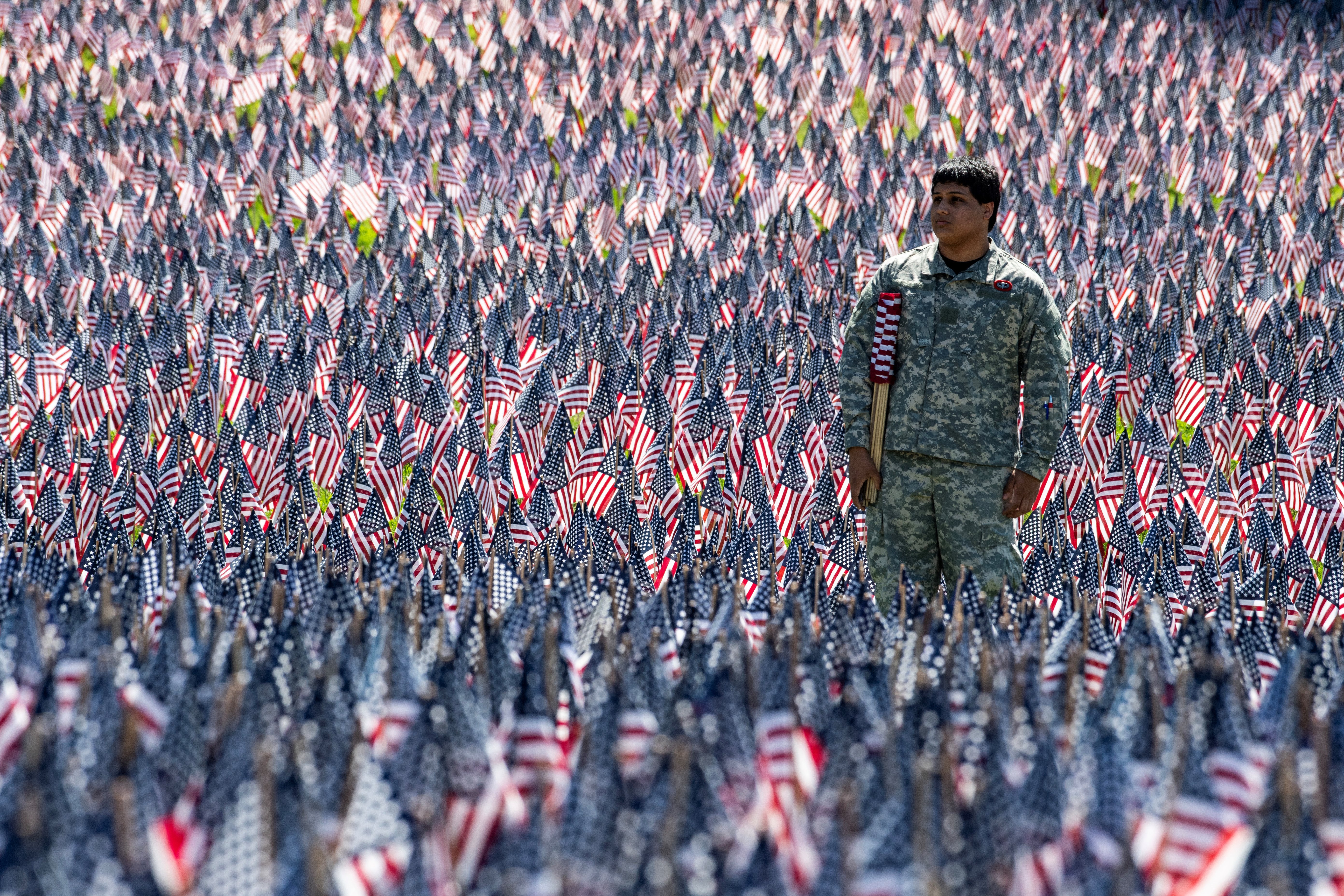The discovery of a Purple Heart and a Bronze Star sent one man on a mission in a saga that takes us from a framing shop in Ashland, Massachusetts, to a cemetery in Saxtons River, Vermont.
Arthur M. Butler was a World War II veteran who lived to be 101. He fought at Okinawa and earned the Purple Heart, Bronze Star and other medals for his heroism. So imagine the surprise of a local framing store owner when he opened a storage bin with those medals and no clear idea of to whom they belonged.
It was determination and patriotism that motivated Don Gordon to get them to the family. He went on a mission to make it happen.
“A few years back, somebody brought in a package with World War II medals. I opened it up and I just said, “Oh my God. I can't believe that these have been here this long," Gordon, owner of Premier Image Gallery, told NBC10 Boston.
There was no paperwork in the box, but there was a big clue - both were engraved with the name Arthur Butler.
"And that's when I decided that I am going to make a quest and find Mr. Butler," Gordon said.
He called his congressman and several local VA officers.
"They gave me the names of a half a dozen Arthur Butlers who served in World War II," Gordon said.
He traced Butler to a senior living community in Marlborough, where he received sad news.
"He had passed. So now I'm saying to myself, how do I do this?"
Gordon was introduced to Charlie Rousseau, the attorney who handled Butler's estate.
"(Arthur was) a bachelor. No children, no grandchildren. 100 years of age, you've kind of outlived a lot of relatives. but he did have a couple of second cousins up in Vermont," Rousseau explained.
Ginger Farquhar was especially close to Butler in their later years. He was about 20 years older than her.
"We spoke every night on the phone at around 9 p.m.," Farquhar said.
She knew him as a banker, a big lover of small trains and large locomotives.
"His trains were his life," she recalled.
He spoke little of his war experiences to Farquhar and her sister Betty Barker.
"Arthur was in Okinawa," Farquhar said.
It was the last major battle of World War II, the bloodiest of the Pacific campaign. Butler was in a firefight, battling from a foxhole and injured by shrapnel from a grenade. He had to wait until morning to be rescued.
"He said one time, he got shot in the ass. So he got a medal for it," Farquhar said, laughing.
"The last night before his passing, he told me he was getting tired, and I thought it was because he'd had a, busy day," she said. "Little did I know that it would be the last time I spoke with him because he passed in the night."
Years after a military funeral came the moment Rousseau was able to present Butler's medals to his family.
Farquhar had a message for Gordon, who took the time to track them down.
"We thank him for finding them," Farquhar said. "It’s like a closure that I can't believe. They were out there and we didn't know they existed," she added.
Farquhar and her sister will give the medals to the Framingham Veterans Administration. Gordon is going to frame them. And that will be a mission accomplished.



